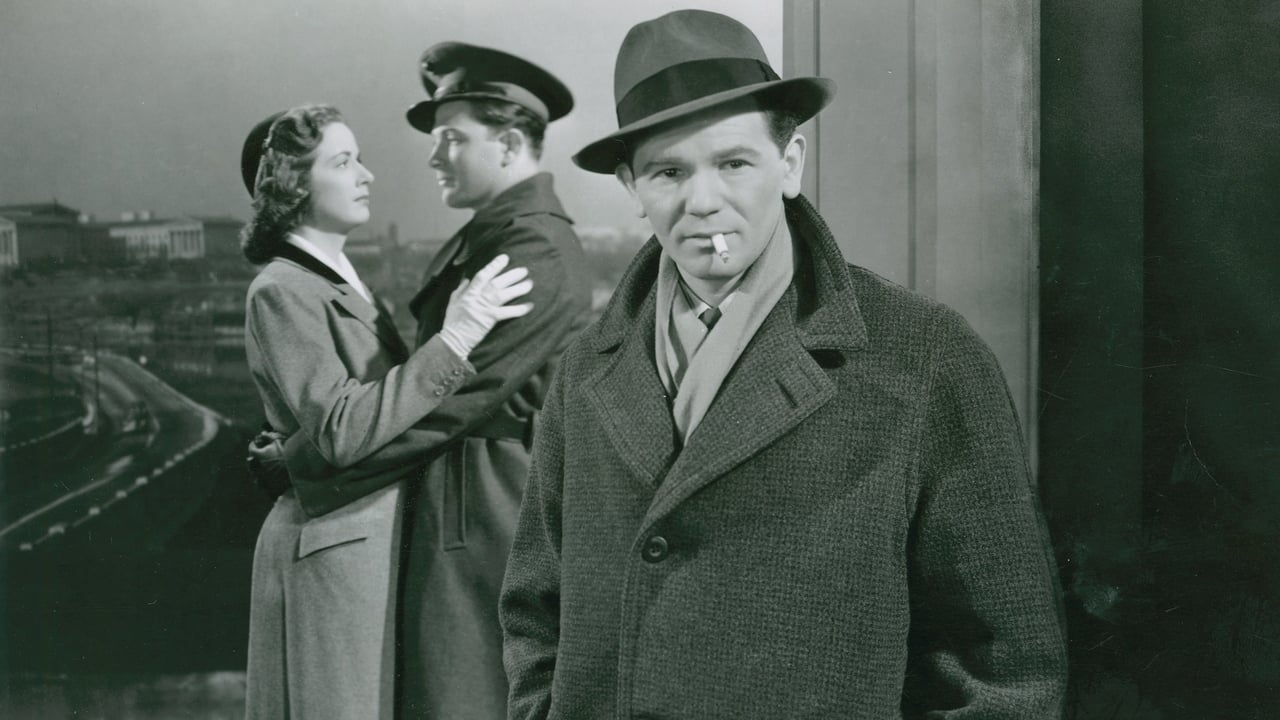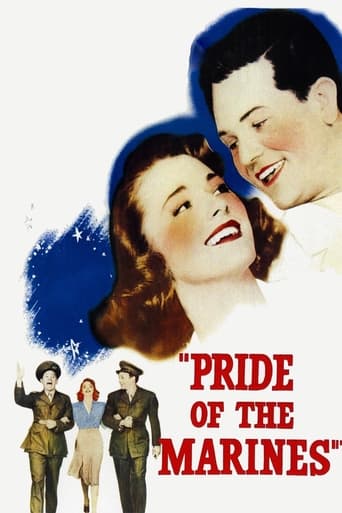

" . . . than bears," 'Ordinary Joe' Al Schmid tells his girlfriend Ruth on the eve of his WWII enlistment into the U.S. Marines. This interchange came in a fact-based movie made the year that America nuked Japan twice, decades before Congress enabled Japanese companies such as Sony to wrest control of the major U.S. film studios and rewrite history to their liking. Since kids today wouldn't be caught dead watching black and white flicks, the only version of The Truth they get is a pack of revisionist lies. If it were possible to hijack a lecture hall full of American college students and compel them to sit through "PRIDE OF THE MARINES," there might be hope for us. However, more than half of such a captive audience would be comprised of "exchange students," sent here to learn our vulnerable spots. Perhaps clairvoyance of today's realities (or of his own assassination a few years later by rabid Congressman Joseph McCarthy) helped actor John Garfield instill so much anger into his character, real life hero Schmid. Sure, Al's a little upset when circumstances force him to gun down 200 Japanese troops in just four hours on Guadacanal (far above his native Pennsylvania's bag limit for bears), despite being blinded by a grenade exploding in his face. But right up to the happy ending, he's "loaded for bear," and rightfully so.
... View MoreThere isn't a lot to say that hasn't been said, This is a masterpiece on the level of "The Best Years of Our Lives" and Delmar Davies best picture. A fantastic supporting cast and Garfield is great. But special mention to Eleanor Parker who is superb (and i am not a fan) and thank heavens that the always wonderful Rosemary De Kamp had an opportunity to play a role where she was the young and attractive woman she was, and not the Mother!IMDb requires more text, so here is a shout out for Dane Clark,Tom D'Andreaand good old reliable Tom Ridgely!
... View More***SPOILERS*** On of the first WWII movies coming out of Hollywood that shows how the war effected those GI's, or in this case US Marines, who fought in it.21 year old Al Schmid, John Garfield, was just starting to live with a well paying job-earning some $40.00 a week-at the local steel mill and girl Ruth Hartley, Elenore Parker, whom he was about to marry when the Japs spoiled everything for him, and millions of likewise young Americans, by attacking the US Pacific Fleet at Pearl Harbor. Doing his duty as an American citizen Al immediately joined the US Marine Corps hoping to get back at the Japs knowing, correctly as it was to turn out, that the Marines would be the first American combat units to get a crack at them.Al finally got his chance when his unit, the 1st Marine Division, landed on August 7, 1942 at Guadalcanal in the far flung Solomon Islands to engage the Japanese who were were in control of it. It was during the battle of the Ilu River that Al almost single handed stopped a massive Japanese Banzai attack holding off, with his machine gun, wave after wave of suicide attacks by the determined Japs until help, or reinforcements, finally arrived. It was during the bloody fighting Al was hit in the face by a Jap grenade that ended up blinding him.Now back in the states convalescing at a naval hospital Al is faced with something far more harder to overcome then battling a battalion size attack of Japanese or German soldiers. He's faced with a future where he'll never see again and having to depend on others to look after, or for, him!We get to see in the film "Pride of the Marines" Al battle himself far harder then he did the Japanese troops on Guadalcanal in just coming to terms with his disability. Not wanting anyone, especially his girlfriend Ruth, to feel sorry for him Al in fact is the one who feels sorry for himself more then anyone else in the movie. It's with the help of Navy Nurse Virginia Pfeiffer, Rosemary DeCamp, and Ruth together with his US Marine buddy Lee Diamond, Dane Clark, that in the end gives Al the courage to face his blindness with the same strength that he faced wave after wave of Japanese troops on Gudalcanal. A courage Al thought he lost back in that God-forsaken island hell in the South Pacific.Based on the true story of US Marine Sergeant Albert Schmid "Pride of the Marines" showed what we were to expect from the tens of thousands of wounded US Servicemen coming back from the war. We get to see how it in many ways was far more difficult for those fighting the war to adjust to a peacetime America when they left something, like in the case of Al Schmid, behind on the battlefield. Al's battle with his personal demons was a lot harder then the Japanese that he fought in that they were part of him and thus had to fight himself in order to overcome and eventually defeat them. Despite the help that he got from both Nurse Virginia and his girlfriend Ruth as well as his Navy doctor-who has a striking resemblance to actor Gregory Peck-it still was up to Al to overcome the fears that he faced. Fears which he and only he had to both battle and overcome, like he was told by everyone in the movie, all by himself.
... View MoreThis is a great film Classic from the 40's and well produced. There are very dramatic scenes in this film with John Garfield,(Al Schmid),"Force of Evil",'48 and Dane Clark,(Lee Diamond),"Last Rites",'88, fighting the Japs during WWII being completely surrounded and with only one machine-gun. When Al Schmid was able to go home after being wounded with a horrible injury, his problems just started to begin with his family and engaged girl friend. Dane Clark gave an outstanding supporting role as Lee Diamond, who did everything to help his buddy Al get his life together again. There is never a complete victory to War and lets not forget all the Brave Wounded Military personnel in Veterans Hospitals from All the Wars and our present Iraq Vets!
... View More